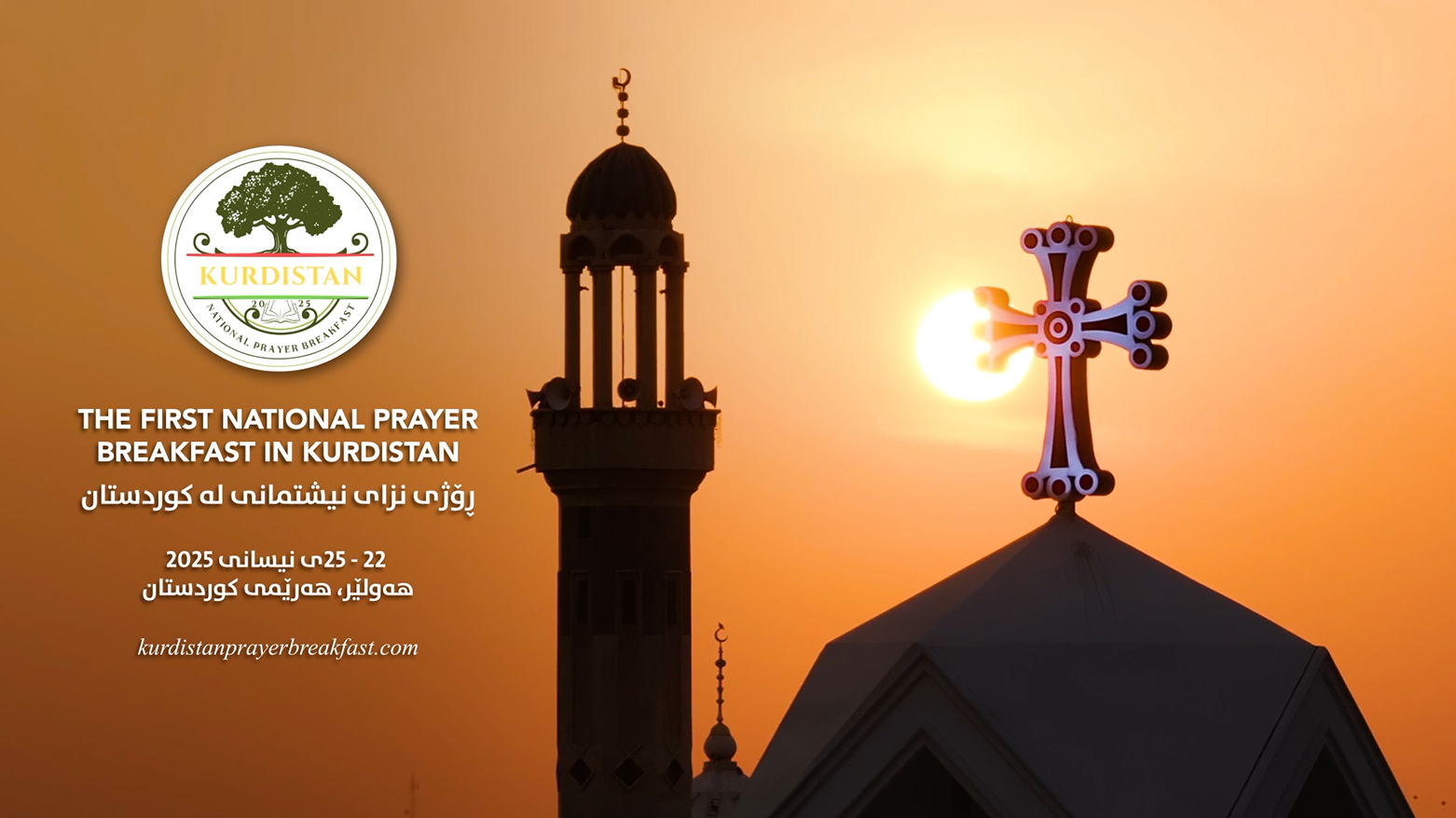Kurdistan National Prayer Breakfast Day Delegates Tour Holy Sites Across Kurdistan
The Kurdistan Region has embraced a genuinely pluralistic approach—bringing together Muslims, Christians, Yazidis, Jews, Zoroastrians, and others under one roof to pray, reflect, and dialogue.

By Ahora Qadi
ERBIL (Kurdistan24) – On the second day of the Kurdistan Region’s historic National Prayer Breakfast Day, international guests and local leaders joined together in a spiritual journey to visit some of the most revered religious sites in the region, underscoring the event’s foundational message of coexistence and mutual respect among faiths.
Delegates began the day with a visit to the sacred Yazidi temple of Lalish, the spiritual heartland of the Yazidi faith. The visit offered a rare opportunity for religious leaders and political figures from around the globe to directly engage with the Yazidi community, gaining a deeper understanding of its ancient beliefs, rich traditions, and resilience in the face of past persecution.
Following the Lalish visit, the delegates were expected to travel to Alqosh, a historic town with deep Christian roots, continuing their journey across Kurdistan’s mosaic of spiritual heritage.
A Landmark Interfaith Celebration in Erbil
The Kurdistan National Prayer Breakfast Day officially launched on Wednesday, in the capital city of Erbil, in a ceremony attended by President Masoud Barzani, Prime Minister Masrour Barzani, Kurdistan president Nechirvan Barzani and a constellation of international dignitaries—including lawmakers, faith leaders, and government representatives from the United States, Europe, the Middle East, and beyond.
Held under the theme “Toward Unity in Faith,” the event marks a milestone in Kurdistan’s commitment to religious freedom, pluralism, and peaceful coexistence.
Over 400 prominent figures—including religious scholars, cultural leaders, parliamentarians, and representatives of global institutions—converged in Erbil for the two-day celebration.
“This gathering is not just ceremonial—it’s a moral affirmation of the values that Kurdistan upholds,” one participant remarked during the event. “It is a living model of what inclusive spiritual harmony can look like in the Middle East.”
A New Tradition Rooted in Ancient Values
While National Prayer Days are celebrated in various countries, Kurdistan’s iteration is distinct. Unlike other nations where such gatherings often focus on a single religion, the Kurdistan Region has embraced a genuinely pluralistic approach—bringing together Muslims, Christians, Yazidis, Jews, Zoroastrians, and others under one roof to pray, reflect, and dialogue.
The visits to holy sites across the region represent more than symbolic gestures—they are active steps in fostering cultural empathy and breaking down walls of misunderstanding.
Institutionalizing Coexistence
This initiative, the first of its kind in Kurdistan, is set to become an annual tradition, reinforcing the region’s long-standing reputation as a haven for religious minorities and a sanctuary for diversity.
At a time when sectarian conflict continues to rattle other parts of the region, the Kurdistan Region’s example stands in sharp contrast, offering a beacon of hope for what inclusive governance and interreligious harmony can achieve.